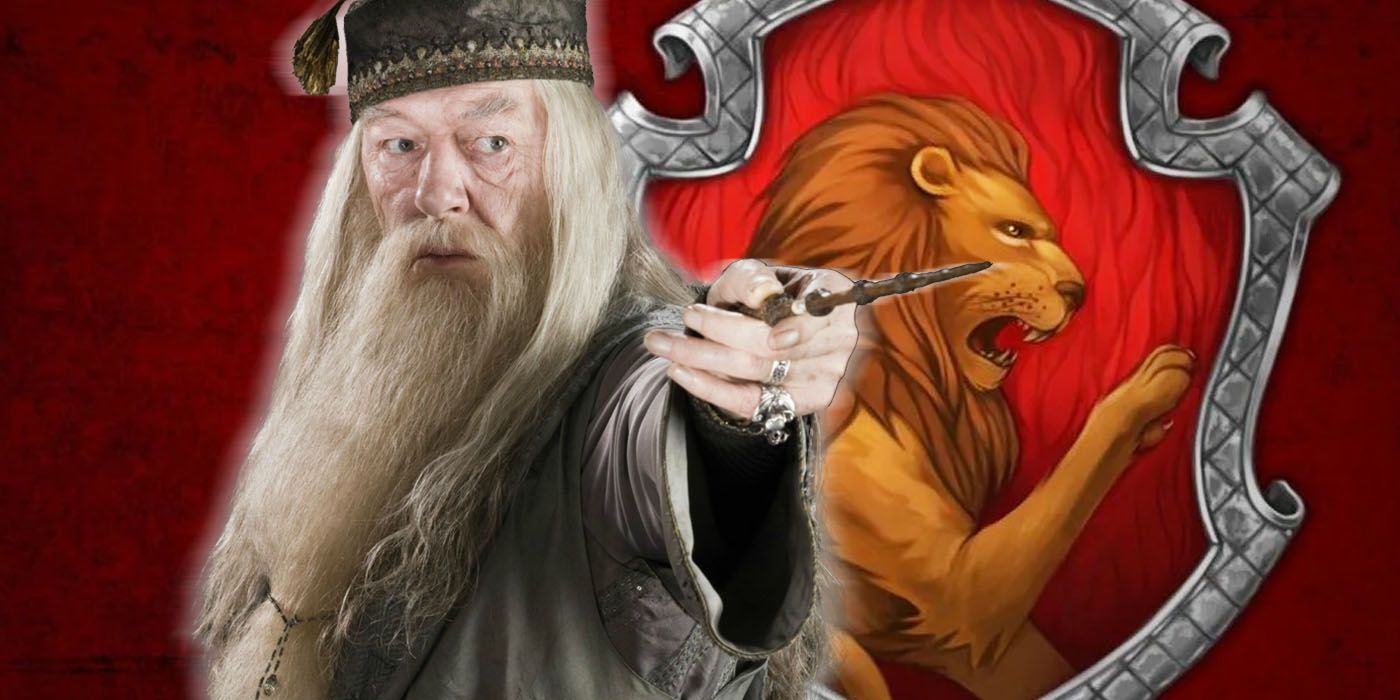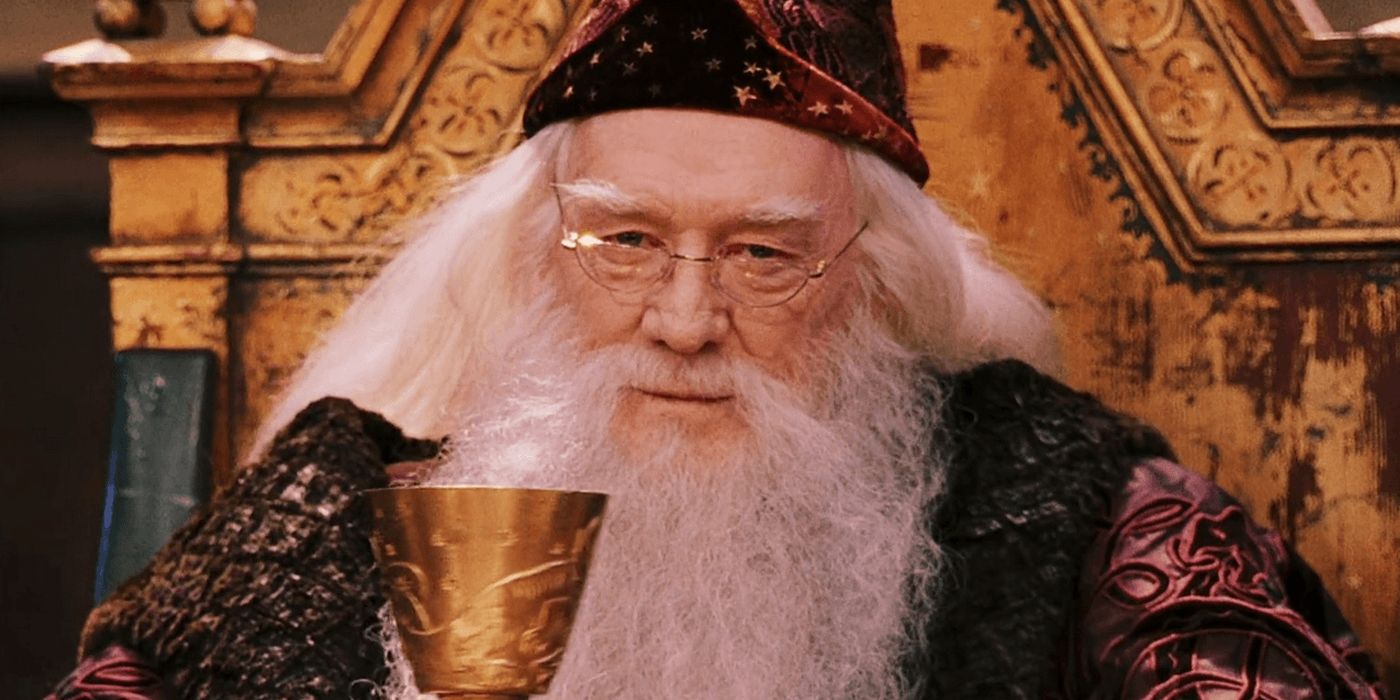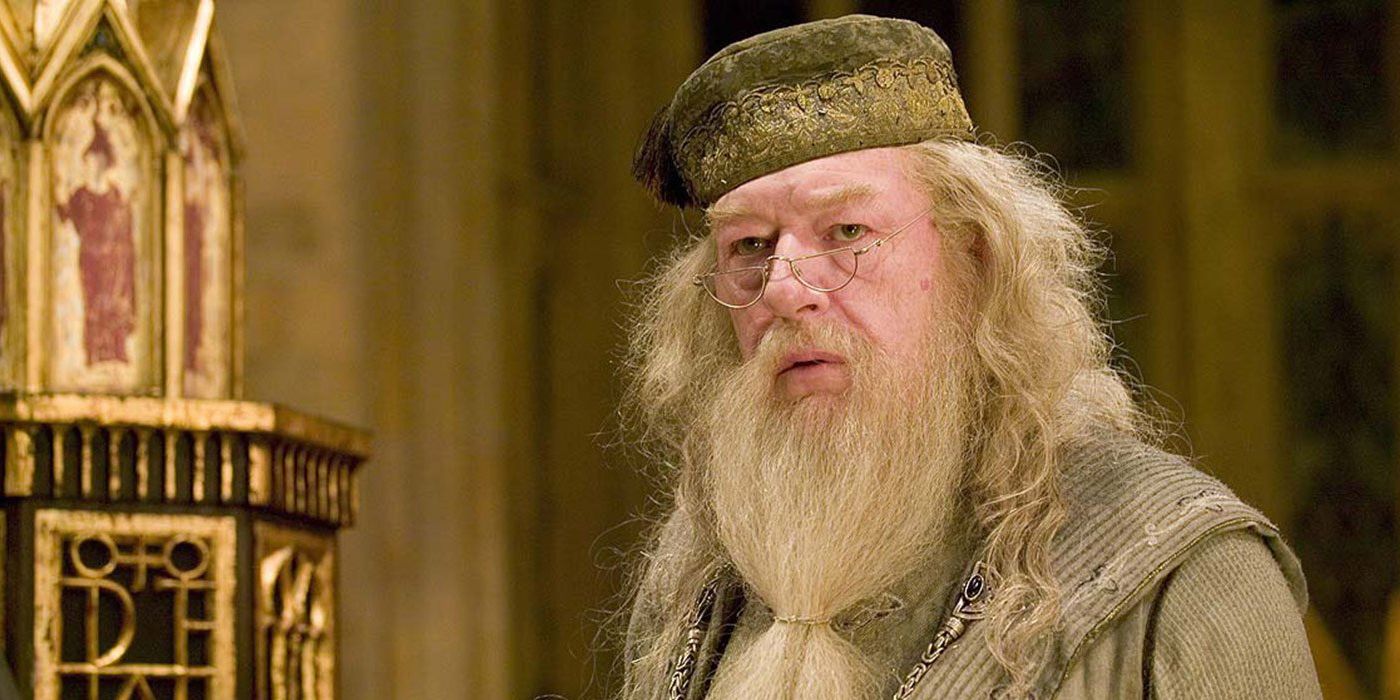
Gryffindors were definitely the star of the show in the Harry Potter series. All of the central characters like Harry Potter, Hermione Granger, Ron Weasley, Neville Longbottom and Fred and George Weasley belonged to Gryffindor, and the plot in each book/movie seemed to revolve around them and their success in their various endeavors. Gryffindor was always framed as the hero, especially when compared to Slytherin. No one made this juxtaposition more apparent than Albus Dumbledore himself, the headmaster of Hogwarts who was supposed to be impartial when it came to all four houses.
But Dumbledore didn't hide his favoritism very well. From the first book/film, Dumbledore made it pretty clear that Harry Potter and his friends could almost get away with murder. Harry, Ron and Hermione's breaking of the rules in Harry Potter and the Philosopher's Stone was for the good of the school. However, he not only let them get off without any consequences but also awarded Gryffindor so many points that they ultimately won the House Cup that year.

But this clear preference of Gryffindor students was not a good look. Even though Albus once belonged to Gryffindor back in his youth, it didn't fully justify his absolute favoritism. And his preference extended beyond Harry Potter -- Dumbledore had let others get away with things that students in other houses would not have been able to. For example, Hermione, as smart and intelligent as she was, broke many rules in her endeavors to help Harry. In Harry Potter and the Chamber of Secrets, Hermione stole potion supplies from Professor Snape's stores and used them to make a Polyjuice potion. She faced no consequences for stealing or making the potion, and her efforts were applauded at the end of the year ceremony.
Likewise, Fred and George Weasley broke a multitude of rules throughout their time at Hogwarts, yet they were never expelled until Professor Umbridge took over in their seventh and final year. From making candies to help students get out of class to testing products on fellow peers, nothing was accounted for in Dumbledore's books. Whether they faced detentions was not confirmed, but for the things they did, they should have been expelled because any student in another house would have been.

Additionally, Harry wasn't the first in his family to get away with things. When James Potter was young, he was part of the iconic Marauders, alongside Remus Lupin, Peter Pettigrew and Sirius Black. The Marauders were notorious for breaking the rules, and yet, all of the members successfully graduated from Hogwarts without a hiccup, all while under the guidance of Albus as the headmaster.
Another big moment that showed Dumbledore's favoritism was when he entrusted Hermione with a Time-Turner, a highly-regulated magical item that is considered to be extremely dangerous. While it didn't seem to be a lack of judgment on his part, as Hermione was able to successfully use it for both her schoolwork and for saving Sirius in Harry Potter and the Prisoner of Azkaban, it's a clear example of how he's willing to bend the rules for the sake of Gryffindor students.
Dumbledore's clear favoritism toward the Gryffindor house was obvious and had lasted generations. And while there was no clear reason for why he did this, it ended up being in the best interests of everyone around, despite being unfair to the students of Slytherin, Hufflepuff and Ravenclaw. Sure, his lackadaisical attitude bred strong witches and wizards, but it was not good for a Headmaster to be so biased.
0 Comments